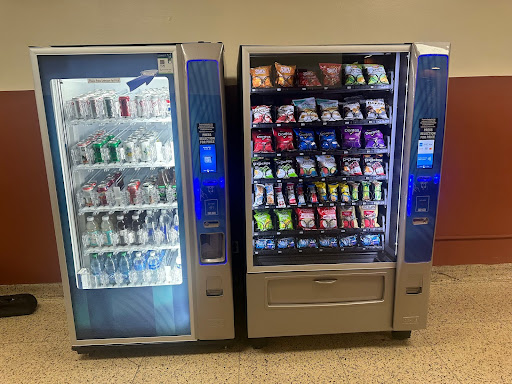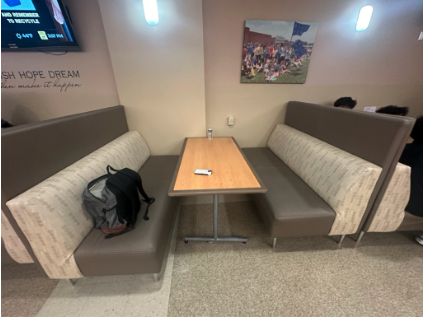In January of 2024, BCA introduced two new vending machines to both the upper and lower cafeterias, filled with new drinks and snacks. Of the new selection of refreshments, BCA students have particularly expressed excitement about one particular drink: Celsius. Celsius is a widely popular energy drink that has gone viral for its low calories and delicious taste. However, what many students fail to realize is that with each can of Celsius, there are 200mg of caffeine. Such high amounts of caffeine in energy drinks sold in schools are creating a controversy on whether or not it is safe for children under the age of eighteen to be consuming such beverages.
To the average BCA student, consuming caffeine in order to get through the rigorous school day is very common. “I usually always have a cup of coffee when coming to school,” said Hyaemhin, a sophomore at BCA. “Especially when I am really tired after studying late into the night, a coffee in the morning helps me stay awake and more focused throughout the day. And I know a lot of my friends and classmates also do the same.”
Hence, when asked about the new availability of Celcius, many students expressed their excitement. “I definitely think that these drinks are popular amongst the student community at BCA,” said Hawon Song, a freshman at BCA. “I even saw the vending machines having to be restocked with Celcius during second period because they already ran out in one period. Also, the drink has already been popular amongst our age group so it did not surprise me to see how excitedly shocked everyone was to see that Celcius is available in these vending machines.”
When asked if students were concerned about the accessibility of such a highly caffeinated drink, many opinions varied. For example, Hawon said, “I honestly do not think so because so many of us, students, have been exposed to these caffeinated drinks like Celcius. And even if they were not sold at BCA, you can still see students holding open cans of Celcius that they brought from home or stores outside school like QuickChek. Also, there are many other options to choose from like tea and Vitamin Water.”
Similarly, other students also mentioned how such caffeinated beverages were available at BCA even before the implantation of these new vending machines. “I feel like selling Celcius will not really have a large impact on the caffeine consumption for BCA students,” said Hyaemhin. “Like many highschools, there will always be students drinking caffeine. And plus, there are already other caffeinated drinks available for students at BCA.”
As Hyaemhin mentioned, BCA has already been selling similar energy drinks such as Bai Boost and Mountain Dew, which have 110 milligrams of caffeine and 111 milligrams of caffeine respectively. Although these two examples have lower amounts of caffeine than Celcius, it is important to note that caffeinated drinks have been available at BCA.
On the other hand, students like Uyen Tran, a sophomore at BCA, believe that these drinks could have a negative impact on students. “Obviously, if drinks like Celcius are available at BCA, more students have easier access to caffeine,” said Uyen. “And this type of exposure could be harmful. But I think it is also important to note that these Celsius drinks have zero sugar. So I do not believe that selling Celcius in vending machines is entirely harmful or negative to students.”
In fact, Celcius can serve as much healthier alternatives compared to other fountain drinks that, in return, have less caffeine.
Ultimately, although there is no perfect energy drink to satisfy all health concerns and simultaneously the enjoyment of consumers, it is important for the BCA community to be aware and mindful of their daily caffeine intake.




